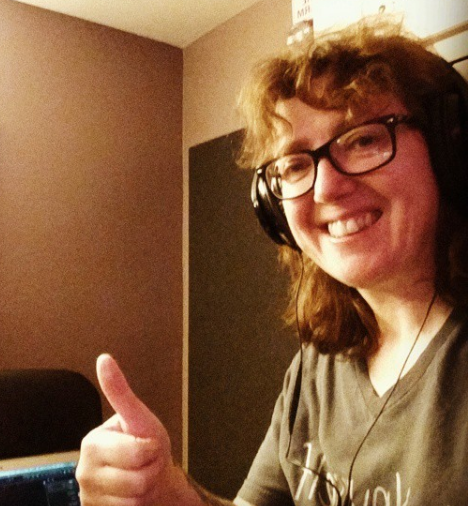Music - Other
Homework Help & Tutoring
We offer an array of different online Music - Other tutors, all of whom are advanced in their fields and highly qualified to instruct you.
Music - Other
Music as a Cure
Music has long been used to make people dance, sing, and cry, but also to help people recover from physical and emotional trauma. The literature has reported that music can be used as a powerful and physically noninvasive tool for reducing pain, stress, depression, and anxiety (Mogos et al., 2013). This discovery has led to the establishment of music therapy practice that utilizes evidence-based music interventions to complement conventional medical therapy and help patients to heal faster. Considering that music-supported therapy can be administered by family members or people other than music therapists, it is essential to know what effects music has on the body and when can music be successfully used as part of therapy.
According to the American Music Therapy Association, music therapy is the evidence-based clinical application of music intervention with an aim to accomplish therapeutic goals (Supnet et al., 2016). Music therapy should be applied by board-certified music therapists who are trained to use their knowledge and skills to address the needs of different patients. Estimates claim that there are around 5,000 music therapists across the globe that work alongside other medical professionals (Knight and Wiese, 2011). Music activates many brain structures that control emotional, cognitive, and sensorimotor processes. Functional neuroimaging studies suggest that music has a powerful effect on mood and emotions because it activates core structures responsible for emotional processing. Additionally, the literature has reported that listening to music can alter the activity of the limbic and paralimbic structures thus evoking pleasurable sensations that involve “chills down the spine” (Koelsch, S., Offermanns, K. & Franzke, P., 2010). According to Blod and Yatorre’s (2001) research, the increase in the intensity of the previously mentioned chills increases the cerebral blood-flow, especially in the regions that control rewards and emotions such as the insula, the prefrontal and orbitofrontal cortex, and ventral striatum. All of this evidence suggests that music has physical effects on the body.
In their study, Varshika and Annali (2014) studied the effects of music on patients that have undergone cardiac surgery. They reported that patients’ experiences were mainly positive because music decreased stress and anxiety levels. They recommended that music therapy should become a routine part of intensive unit postoperative care. A review of studies that examined the effects of music on acute stroke patients reported that music intervention could result in favorable treatment outcomes by reducing the levels of pain, anxiety, and stress in these patients (Supnet et al., 2016). The authors, therefore, recommended that nurses working with post-stroke patients need to be better educated on the therapeutic role of music so that they can use music intervention in the rehabilitation centers for stroke patients. Some authors have also investigated the effects that musical intervention has on patients suffering from affective disorders. Affective disorders are a group of mood or psychiatric disorders that include depression, anxiety, and bipolar disorder. As these disorders are caused by changes in the functioning of neurotransmitters responsible for controlling the mood, researchers hypostatized that music interventions could benefit these patients. Researchers reported that that pleasant music could modulate brain activity and activate areas responsible for pleasure and reward (Koelsch, S., Offermanns, K. & Franzke, P., 2010). Music can also benefit the way patients perceive medical care. In their randomized study, Mogos et al. (2013) investigated the effects of therapeutic music on hospitalized patients. The authors reported that patients who were exposed to music intervention gave higher scores when rating the care they received. Therefore, the authors believe music interventions can be successfully used to improve treatment outcomes and patient satisfaction during hospitalization.
References
Blood, A., & Zatorre, R. J. (2001). Intensely pleasurable responses to music correlate with activity in brain regions implicated in reward and emotion. Proceedings of the National Academy of Sciences of the United States of America, 98, 11818-11823. Bradley, M. M.,
Knight, A. J., & Wiese, N. (2011). Therapeutic Music and Nursing in Poststroke Rehabilitation. Rehabilitation Nursing, 36(5), 200-+.
Koelsch, S., Offermanns, K. & Franzke, P. (2010). Music in the Treatment of Affective Disorders: An Exploratory Investigation of a New Method for Music-Therapeutic Research. Music Perception: An Interdisciplinary Journal, (4), 307. doi:10.1525/mp.2010.27.4.307
Mogos, M. F., Angard, N., Goldstein, L., & Beckstead, J. W. (2013). The effects of live therapeutic music on patient's affect and perceptions of care: A randomized field study. Complementary Therapies In Clinical Practice, 19188-192. doi:10.1016/j.ctcp.2013.07.003
Supnet, C., & Crow, A. (2016). Music as Medicine: The Therapeutic Potential of Music for Acute Stroke Patients. Critical Care Nurse, 36(2), e1-e7. doi:10.4037/ccn2016413
Varshika M, B., & Annali D.H, B. (2014). The therapeutic use of music as experienced by cardiac surgery patients of an intensive care unit. Health SA Gesondheid (Online), (1), 01.
To fulfill our tutoring mission of online education, our college homework help and online tutoring centers are standing by 24/7, ready to assist college students who need homework help with all aspects of music. Our music tutors can help with all your projects, large or small, and we challenge you to find better online music tutoring anywhere.
College Music - Other Homework Help
Since we have tutors in all Music - Other related topics, we can provide a range of different services. Our online Music - Other tutors will:
- Provide specific insight for homework assignments.
- Review broad conceptual ideas and chapters.
- Simplify complex topics into digestible pieces of information.
- Answer any Music - Other related questions.
- Tailor instruction to fit your style of learning.
With these capabilities, our college Music - Other tutors will give you the tools you need to gain a comprehensive knowledge of Music - Other you can use in future courses.
24HourAnswers Online Music - Other Tutors
Our tutors are just as dedicated to your success in class as you are, so they are available around the clock to assist you with questions, homework, exam preparation and any Music - Other related assignments you need extra help completing.
In addition to gaining access to highly qualified tutors, you'll also strengthen your confidence level in the classroom when you work with us. This newfound confidence will allow you to apply your Music - Other knowledge in future courses and keep your education progressing smoothly.
Because our college Music - Other tutors are fully remote, seeking their help is easy. Rather than spend valuable time trying to find a local Music - Other tutor you can trust, just call on our tutors whenever you need them without any conflicting schedules getting in the way.


